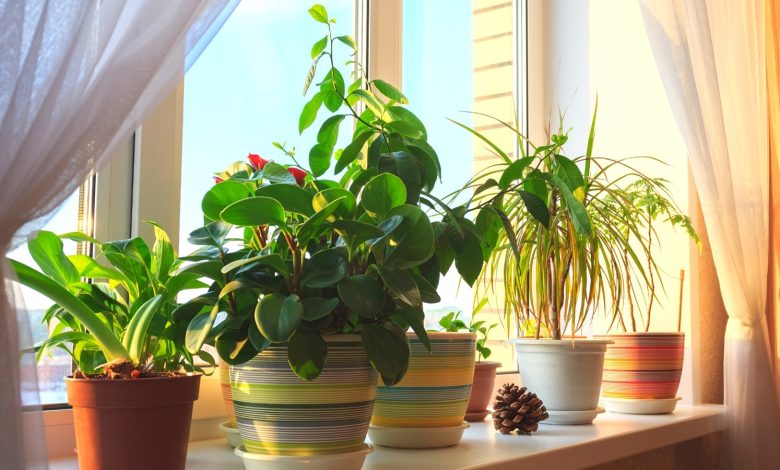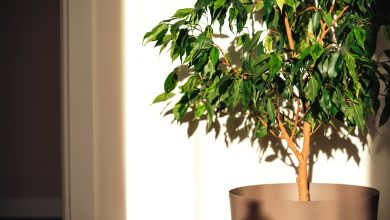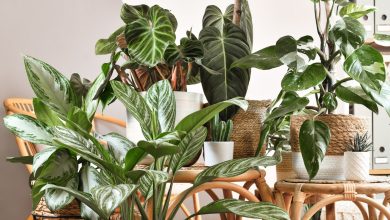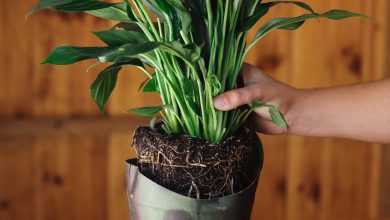Debunking 14 Common Houseplant Myths

Are you looking for reliable information about houseplants? If so, you’ve come to the right place! In this article, we’ll be debunking 14 common houseplant myths. We’ll provide accurate information about the care and maintenance of houseplants, so you can be sure that your plants are getting the best care possible. Whether you’re a beginner or an experienced gardener, this article will help you make informed decisions about your houseplants.
The Benefits of Houseplants
Houseplants are a great way to bring life and beauty into your home. Not only do they look great, but they can also have a positive impact on your physical and mental health. Here are some of the benefits of having houseplants in your home.
1. Improved Air Quality: Houseplants are natural air purifiers. They absorb pollutants and toxins from the air, such as formaldehyde, benzene, and trichloroethylene. This helps to reduce indoor air pollution and improve air quality.
2. Stress Relief: Studies have shown that houseplants can reduce stress and anxiety. The presence of plants can help to create a calming and soothing environment, which can help to reduce stress levels.
3. Improved Mood: Houseplants can also help to improve your mood. The presence of plants can help to create a positive atmosphere, which can help to boost your mood and reduce feelings of depression and anxiety.
4. Increased Productivity: Studies have shown that having houseplants in the workplace can help to increase productivity. The presence of plants can help to create a more stimulating and positive environment, which can help to improve focus and concentration.
5. Improved Health: Houseplants can also help to improve your physical health. They can help to reduce symptoms of allergies and asthma, as well as reduce the risk of infection.
Overall, houseplants can have a positive impact on your physical and mental health. They can help to improve air quality, reduce stress, boost your mood, increase productivity, and improve your physical health. So, if you’re looking for a way to improve your home, adding some houseplants is a great way to do it.
How to Care for Houseplants
Caring for houseplants is a rewarding experience that can add beauty and life to your home. With the right knowledge and care, your houseplants can thrive and bring you joy for years to come. Here are some tips to help you get started on your journey of caring for houseplants.
First, it’s important to choose the right plants for your home. Different plants require different levels of light, water, and humidity, so make sure to research the needs of each plant before bringing it home. You should also consider the size of the plant and the amount of space you have in your home.
Once you’ve chosen the right plants for your home, you’ll need to provide them with the right environment. Make sure to place your plants in an area with adequate light, but avoid direct sunlight, which can be too harsh for some plants. Also, make sure to water your plants regularly, but be careful not to overwater them.
In addition to light and water, your plants will need other nutrients to stay healthy. You can use a balanced fertilizer once a month to give your plants the nutrients they need. Also, make sure to remove any dead or dying leaves or stems from your plants to prevent the spread of disease.
Finally, it’s important to monitor your plants for signs of pests or disease. Check your plants regularly for signs of pests, such as aphids or mealybugs, and treat them with an appropriate pesticide if necessary. Also, watch for signs of disease, such as yellowing leaves or wilting stems, and treat them with a fungicide or insecticide as needed.
Caring for houseplants can be a rewarding experience, but it does require some knowledge and effort. With the right care, your plants can thrive and bring you joy for years to come.
Debunking Myths About Houseplant Watering
When it comes to houseplant watering, there are many myths and misconceptions that can lead to the death of your beloved plants. To ensure that your houseplants thrive, it’s important to understand the truth behind these myths and debunk them.
One of the most common myths about houseplant watering is that you should water them every day. This is not true; in fact, overwatering is one of the most common causes of death for houseplants. Overwatering can cause root rot, which can be fatal to your plants. Instead, you should water your plants only when the soil is dry. You can test the soil by sticking your finger into it; if it’s dry up to your first knuckle, it’s time to water.
Another myth is that you should water your plants from the top down. This is not true; in fact, it can lead to waterlogging and root rot. Instead, you should water your plants from the bottom up. This means that you should place your plant in a bowl of water and let it soak up the water from the bottom. This will ensure that the roots get the water they need without the risk of waterlogging.
Another myth is that you should use cold water for your plants. This is not true; in fact, cold water can shock your plants and cause them to die. Instead, you should use room temperature or lukewarm water for your plants. This will ensure that your plants get the water they need without any risk of shock.
Finally, many people believe that you should fertilize your plants every time you water them. This is not true; in fact, over-fertilizing can be just as damaging as overwatering. Instead, you should fertilize your plants every two to four weeks, depending on the type of plant.
By debunking these myths about houseplant watering, you can ensure that your plants stay healthy and thrive. Remember to water your plants only when the soil is dry, water them from the bottom up, use room temperature or lukewarm water, and fertilize them every two to four weeks. With these tips, you can keep your plants healthy and happy.
Common Misconceptions About Houseplant Fertilizing
Houseplant fertilizing is an important part of keeping your plants healthy and thriving, but there are a few common misconceptions about it that can lead to problems. Here are some of the most common misconceptions about houseplant fertilizing and the truth behind them.
Misconception #1: Fertilizing is not necessary.
Houseplants need fertilizer to help them grow and stay healthy. Fertilizer helps replenish the nutrients in the soil that are used up by the plant as it grows. Without fertilizer, your plants may not be able to reach their full potential.
Misconception #2: Fertilizing should be done every day.
Fertilizing too often can actually be harmful to your plants. Over-fertilizing can cause the plant to become too saturated with nutrients, leading to nutrient burn. The best practice is to fertilize your plants once a month or every other month, depending on the type of fertilizer you use.
Misconception #3: All fertilizers are the same.
Not all fertilizers are created equal. Different types of fertilizers are designed for different types of plants and can provide different levels of nutrients. It’s important to choose the right fertilizer for your specific plants to ensure they get the nutrients they need.
Misconception #4: Fertilizer should be applied directly to the soil.
Fertilizer should never be applied directly to the soil. It should be mixed with water and applied to the soil in order to avoid burning the roots of the plant.
Misconception #5: Fertilizer should be applied to the leaves.
Fertilizer should never be applied directly to the leaves of a plant. This can cause the leaves to burn and can even kill the plant.
Fertilizing your houseplants is an important part of keeping them healthy and happy. By understanding the truth behind these common misconceptions, you can ensure that your plants get the nutrients they need without causing any damage.
Debunking Myths About Houseplant Repotting
Houseplant repotting is a necessary part of caring for your houseplants, but it can be a daunting task. Many people have misconceptions about repotting that can make them hesitant to take on the task. Here, we’ll debunk some of the most common myths about houseplant repotting to help you feel more confident about taking on this important task.
Myth #1: Repotting is only necessary when a plant is root-bound.
This is a common misconception, but it’s not true. While it’s true that repotting is often necessary when a plant is root-bound, it’s also important to repot your plants every year or two to give them fresh soil and to provide them with a larger pot if they’ve outgrown their current one.
Myth #2: Repotting is difficult and time-consuming.
Repotting doesn’t have to be difficult or time-consuming. In fact, it can be quite simple. All you need is a new pot, some fresh potting soil, and a few basic tools. Once you’ve gathered your supplies, the process of repotting is fairly straightforward.
Myth #3: Repotting is stressful for plants.
This is another common misconception, but it’s not true. Repotting can actually be beneficial for your plants. By repotting them, you’re providing them with fresh soil and a larger pot, which can help them to grow and thrive.
Myth #4: Repotting should only be done in the spring.
While it’s true that spring is a great time to repot your plants, it’s not the only time. In fact, you can repot your plants any time of year. Just make sure to provide them with the proper care and attention to ensure they stay healthy and happy.
By debunking these myths about houseplant repotting, we hope we’ve helped to make the task seem less intimidating. With the right supplies and a bit of know-how, repotting your houseplants can be a simple and rewarding task.
In conclusion, it is important to be aware of the myths surrounding houseplants and to do your own research before believing everything you hear. While some of the myths are true, many of them are not. Knowing the truth about houseplants can help you make informed decisions about which plants to buy and how to care for them. With the right knowledge and care, you can have a thriving houseplant collection that adds beauty and life to your home.
Excerpt
Many people believe common myths about houseplants, such as that they need direct sunlight, are difficult to care for, or can purify the air. However, these myths are false and can lead to poor care. Debunking 14 Common Houseplant Myths is an informative guide to help readers understand the truth about houseplant care.


